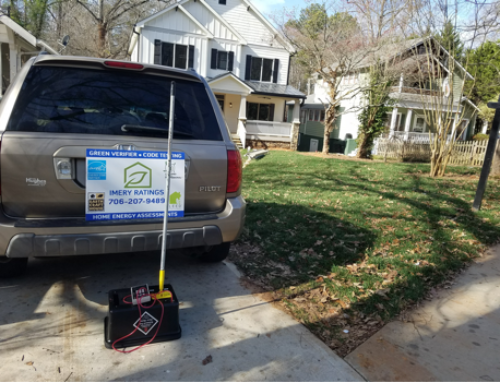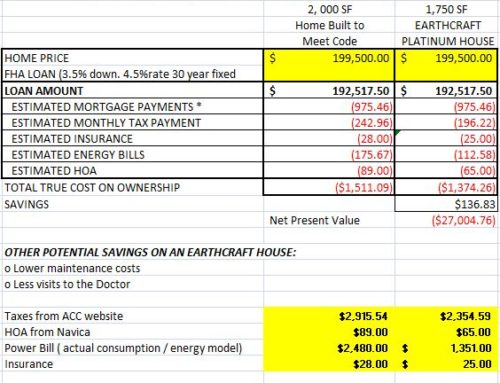These are very simple questions that I have been asked a lot lately.
For the past two weeks I have been busy attending different events, and have had the chance to talk to many homeowners, and professionals in the field of energy efficiency.
To start with the Athens Area Home Builders Association recently hosted the 2011 Home & Garden Show. I decided to have a booth to promote my businesses, and generally speaking I had a 50-50 split between people wanting to learn more about green homes and the different green construction programs, and another bunch wanting to talk about home energy improvement projects and home energy audits. In this post I’d like to focus on the latter part.
For those individuals that approached me, that were Georgia Power customers, it was easy to explain the process of an energy assessment and the different rebates available to them as a consumer. Georgia Power has spent a lot of time and money in getting their act together to promote energy efficiency in the existing home market. But for does NOT customers of said utility company it was a bit more complex since they are many other protocols that an energy auditor could follow and still deliver a good quality report. In any event, for these two types of customers, the underlying issue was the cost of the audit and figuring out:
- How do I know if I will benefit from a Home Energy Audit before committing to one?
- How can I find out how efficient is my home?
In an effort to address those two legitimate questions, and to better serve my customers and community, I have found several resources that you can use for free.
The first one gives you a rough idea of the efficiency of your home based on your past utility bills, home size and a few other parameters that are then compared to a benchmark and tells you more less how efficient is your home. You can download this energy efficient spreadsheet here , and follow the instructions on the first tab. An example can be found on the second tab. ( thanks fellow raters for getting this tool in my hand)
If the latter option is to complex for you, then you can go to http://www.energysavvy.com/ and use their energy efficiency tool. In this case, you will be asked a series of simple questions about your home in order to get a quick report on what you can do to improve the efficiency on your home. This tool does not use information pertaining to current energy comsuption.
So, there you have it. Use these two resources for free. However keep in mind that these are for general purpose and will never be as accurate as getting a certified energy audit but is definitely a good start. At least they will help you answer the two questions that I was constantly asked.



